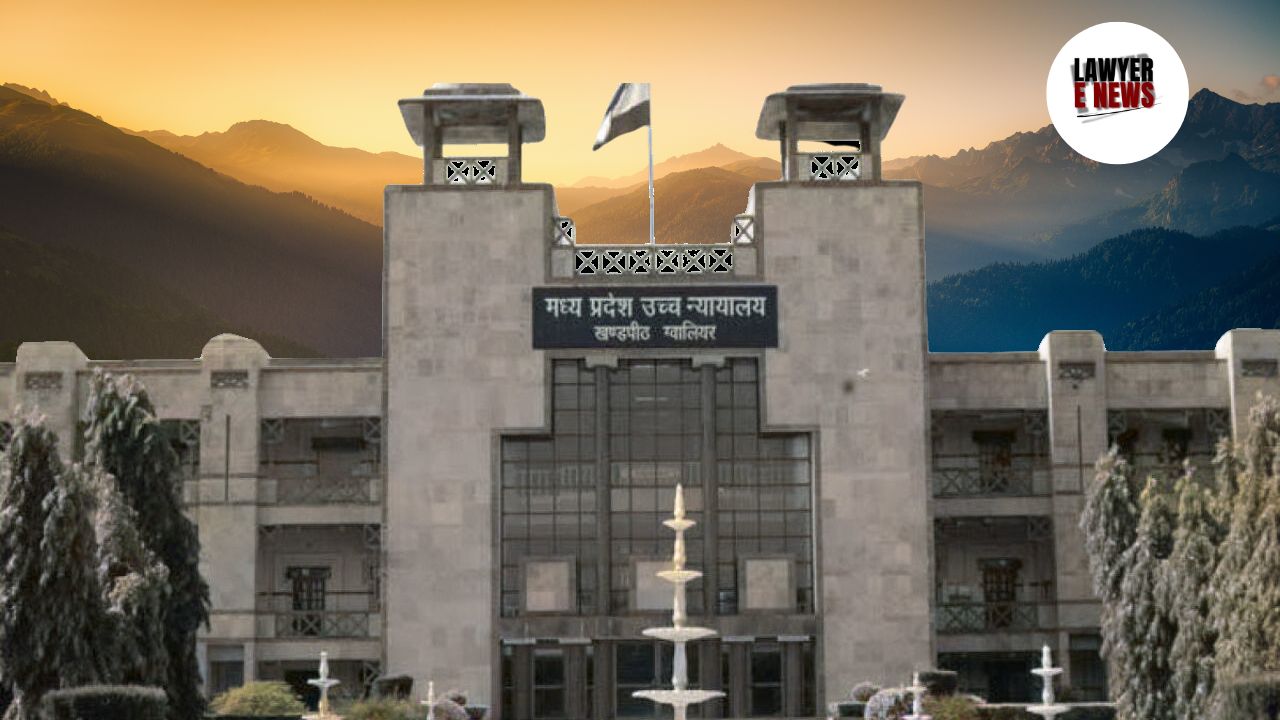-
by sayum
14 February 2026 2:22 PM



Court dismisses petition challenging Recovery Officer's order, highlights adherence to natural justice and statutory procedures. The High Court of Madhya Pradesh at Jabalpur, presided by Justice Vinay Saraf, has dismissed a petition challenging the execution of a debt recovery certificate issued by the Recovery Officer of the Debts Recovery Tribunal (DRT), Jabalpur. The court upheld the actions of the Recovery Officer, emphasizing the necessity of exhausting alternative statutory remedies and adhering to principles of natural justice.
M/S Shriram Plast and its partners, Vijay Kumar Shrivastava, Alka Shrivastava, and Abhay Raj Shrivastava, availed a credit facility from MP Financial Corporation, Jabalpur. Following a default in repayment, the corporation filed an Original Application (OA No. 870/2020) before the DRT, Jabalpur. On 21.08.2023, the DRT issued a final order and a recovery certificate for Rs. 12,66,31,700/-. Subsequently, the Recovery Officer initiated execution proceedings (RC No. 1/2024), issuing notices to the petitioners on 09.02.2024 and scheduling a hearing for 11.03.2024.
On 11.03.2024, the petitioners’ counsel, Mr. Deepak Pachori, appeared and filed a vakalatnama. The petitioners also submitted an One Time Settlement (OTS) report, which was noted by the Recovery Officer. Despite this, the petitioners argued that they were not granted sufficient time to file formal objections, leading to the present writ petition challenging the execution order.
Adherence to Statutory Procedures: The court found that the Recovery Officer had followed all statutory procedures under the Recovery of Debts and Bankruptcy Act (RDB Act) and the Income Tax (Certificate Proceedings) Rules, 1962. The petitioners’ contention that the Recovery Officer failed to grant adequate time for filing objections was not supported by any formal documentation.
Importance of Filing Objections: Justice Saraf emphasized the procedural obligations of the debtors, stating, “It is the duty of the party to file objections if they wish to contest the execution of a recovery certificate. The Recovery Officer cannot be expected to delay proceedings without any formal objections being filed.” The court highlighted that the petitioners had not submitted any written objections prior to the execution order.
Alternative Remedy: The court underscored the principle that writ petitions should not circumvent statutory remedies unless exceptional circumstances are evident. The judgment stated, “Despite the availability of an alternative remedy under Section 30 of the RDB Act, the petitioners chose to file a writ petition, which is not justified.”
The judgment extensively discussed the principles of natural justice and the procedural safeguards within the RDB Act. The court referenced several precedents, including the Full Bench decision in M/s Kowa Spinning Ltd. vs. Debt Recovery Tribunal and the Supreme Court’s ruling in State of Madhya Pradesh vs. Sanjay Nagayach, affirming that judicial intervention via writ jurisdiction is a discretionary power to be used judiciously.
Justice Saraf remarked, “The procedural adherence by the Recovery Officer cannot be faulted in the absence of any formal objections. The statutory framework under the RDB Act ensures adequate safeguards for debtors to contest recovery actions.”
The High Court’s dismissal of the petition reinforces the judiciary’s stance on the importance of exhausting statutory remedies and maintaining procedural fairness in debt recovery cases. This judgment underscores the necessity for certificate debtors to actively engage in the recovery process by filing timely objections and utilizing available legal remedies. The decision is expected to streamline the execution of recovery certificates and uphold the efficacy of debt recovery mechanisms.
Date of Decision:7th May 2024
